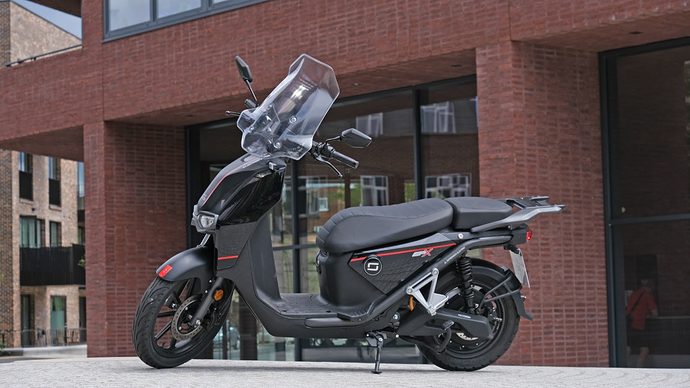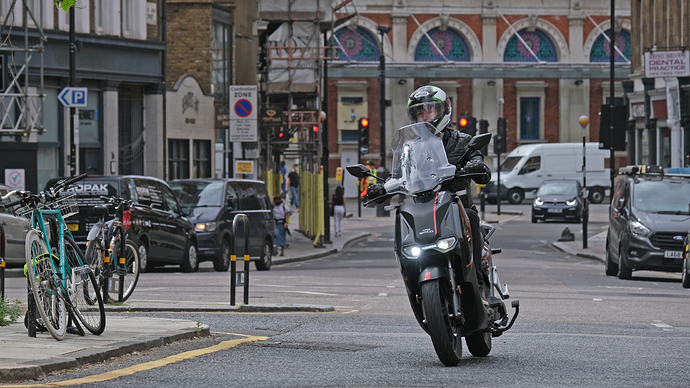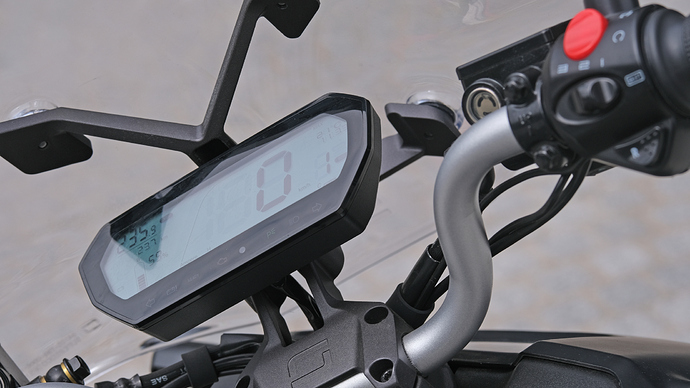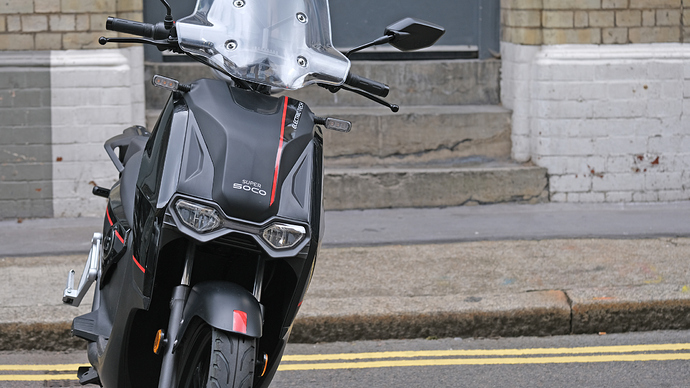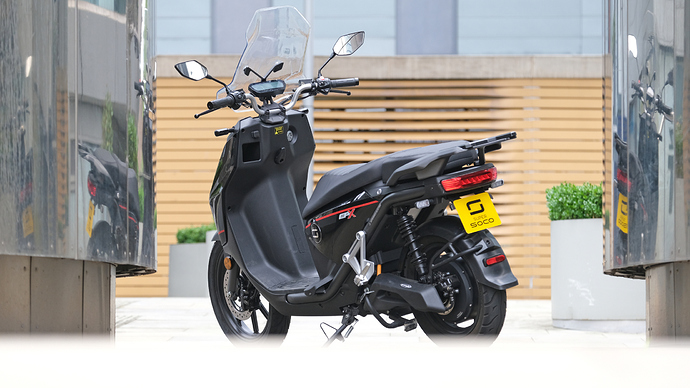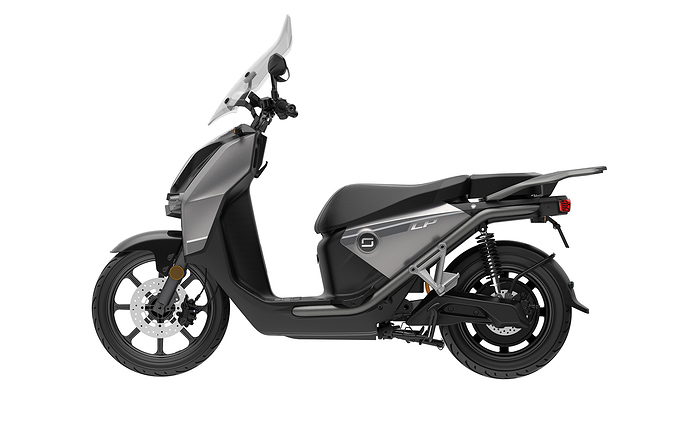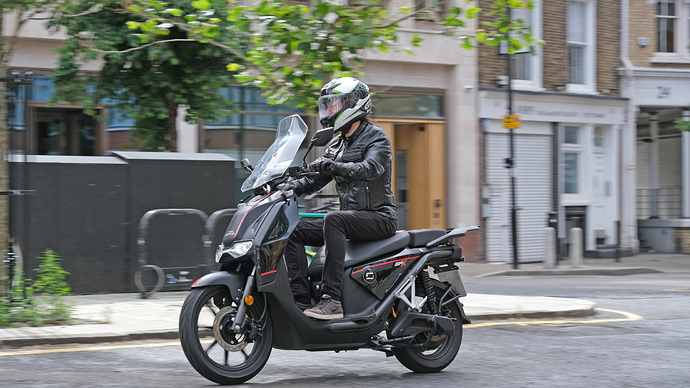Press release just in:
The UK’s most popular electric motorcycle brand, Super Soco, is expanding its product range even further with the all new CPx, a 125cc equivalent maxi scooter that makes city commuting an ease. The nimble two seater scooter offers up to 80 miles on one charge (two batteries) and costs just £3,599 with the OLEV plug-in Motorcycle Grant.
As commuters begin returning to work, there has been a growing demand for alternative modes of transport outside of the traditional trains, buses and underground. Super Soco, the best-selling electric motorcycle brand in the UK, has noticed a sharp increase in the number of new riders looking for a clean, green and cost-effective alternative. The company is now excited to be expanding its product range even further with a move into the maxi scooter market with the new CPx.
The all-new two seater machine has been created to provide commuters across rural and urban environments with a fast, nimble ride. Equivalent to a 125cc petrol scooter, the CPx has capacity for two 60V, 45Ah batteries, which combined can give a range of up to 80 miles and a top speed of 56mph, ensuring it is suitable for A roads.
All Super Soco machines are designed with removable batteries, allowing commuters to easily remove them after arriving at work and charge them whilst at their desk. The CPx batteries are able to be fully charged in just three and a half hours.
In order to traverse the hustle and bustle of a major city, the CPx comes with telescopic front forks and a hydraulic monoshock rear shock absorber, ensuring it is incredibly nimble through traffic. With a seat height of 760mm, and weighing just 107kg, the CPx is suitable for riders of all statures.
The scooter is able to be ridden on UK roads with just a CBT and an L plate, and will be available in dealers from September. The CPx is available in three colours, black, great and silver, and will cost just £3,599 with one battery inclusive of the OLEV plug-in Motorcycle Grant (£4,498.75 without) whilst the two battery version costs £4,699 (£5.875.75 without OLEV).
Andy Fenwick, Super Soco UK, added “We are really excited to finally be launching the CPx. We unveiled it for the first time to the UK market at Motorcycle Live in 2019 and since then it has been our most asked about model. Maxi scooters provide a great way to quickly get around town and the CPx provides a nimble, cost-effective solution for those riders looking to socially distance and discover the benefits two wheels offer.”
Notes:
- Super Soco was founded in 2015 and launched in the UK in 2017
- Super Soco machines are distributed in 59 international markets around the world
- There are currently over 60 dealers in the UK
- Electricity currently costs approximately £0.12 to £0.18 per kWh, so using a Super Soco electric motorcycle means you will spend less than £1.00 per 100 miles
- Super Soco was designed from the ground up as an electric motorcycle, following a $15m crowdfunding campaign
- Super Soco machines are homologated for the entire European market
- All Super Soco machines comprise an external charger and removable battery and can be charged at any common household socket.
